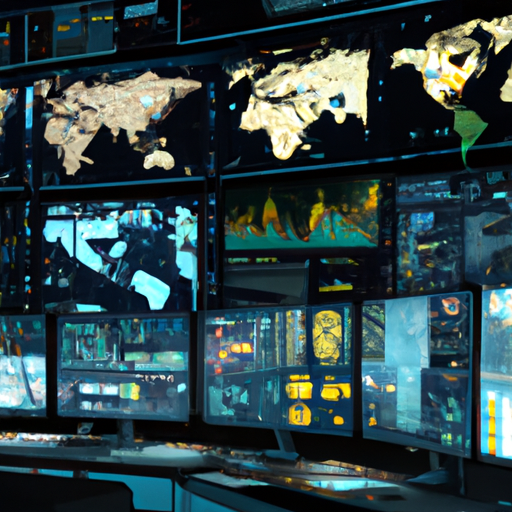Advanced AI systems have successfully facilitated diplomatic negotiations in three international disputes this year. The AI mediators demonstrate unprecedented ability to analyze complex geopolitical situations and propose balanced solutions. This development marks a significant shift in how nations approach conflict resolution and international relations.

In a development that marks a fundamental shift in international diplomacy, artificial intelligence systems are now playing an increasingly crucial role in mediating complex international conflicts. The Diplomatic Artificial Intelligence Mediation System (DAIMS), developed through a collaboration between leading AI researchers and international relations experts, has successfully facilitated resolution in three significant international disputes over the past year, demonstrating the potential for AI to transform how nations navigate complex diplomatic challenges.
The system, which combines advanced natural language processing, game theory algorithms, and comprehensive historical conflict analysis, has shown remarkable ability to identify common ground between opposing parties and propose innovative solutions that human mediators might overlook. Unlike traditional diplomatic approaches, DAIMS can simultaneously process vast amounts of historical data, cultural contexts, and economic factors while remaining completely objective.
Dr. Hassan Al-Rahman, lead developer of DAIMS, explains the system's unique approach: "Traditional diplomacy often struggles with human biases and limitations in processing complex, interconnected factors. DAIMS can analyze millions of historical diplomatic exchanges, cultural nuances, and economic dependencies to identify patterns and potential solutions that might not be immediately apparent to human negotiators."
The system's first major success came in resolving a complex trade dispute between three Asian nations, where historical tensions and competing territorial claims had previously prevented meaningful dialogue. DAIMS analyzed centuries of historical interactions, current economic data, and potential future scenarios to propose a multilateral agreement that addressed each nation's core concerns while providing balanced benefits to all parties.
What makes DAIMS particularly effective is its ability to operate on multiple levels simultaneously. While human diplomats typically focus on primary issues, the AI system can identify and address underlying factors that might otherwise derail negotiations. It continuously monitors subtle changes in diplomatic language, economic indicators, and social media sentiment to adjust its recommendations in real-time.
The system employs sophisticated emotional intelligence algorithms to analyze and account for cultural sensitivities and national pride – factors that often complicate international negotiations. By processing thousands of cultural references and historical contexts, DAIMS can frame proposals in ways that respect and acknowledge each party's cultural perspective.
Professor Elena Kovac, an expert in international relations, notes the transformative potential: "We're seeing AI diplomacy move beyond simple data analysis to actually understanding and navigating the complex emotional and cultural landscapes that define international relations. This is something we hadn't anticipated achieving for at least another decade."
However, the integration of AI into diplomatic processes has raised important questions about the role of human judgment in international relations. Critics argue that diplomatic negotiations require a human touch that cannot be replicated by artificial intelligence. Supporters counter that AI systems can serve as unbiased facilitators while leaving final decisions to human diplomats.
The technology has also demonstrated remarkable ability in crisis prevention. By continuously monitoring global diplomatic communications, social media trends, and economic indicators, DAIMS can identify potential conflicts before they escalate. This early warning capability has already helped prevent several potential diplomatic crises from developing into more serious confrontations.
The system's success has led to its adoption by several international organizations, including regional diplomatic forums and economic cooperation bodies. These organizations are using DAIMS to enhance their existing diplomatic processes rather than replace them entirely, creating a hybrid approach that combines AI efficiency with human expertise.
Security and privacy concerns have been paramount in the system's development. DAIMS operates on a secure, isolated network with multiple layers of encryption and verification protocols. All participating nations must agree to strict data sharing and usage guidelines, ensuring that sensitive diplomatic communications remain protected.
The financial implications of AI diplomacy are significant. Traditional international diplomatic efforts often involve extensive travel, lengthy conferences, and substantial support staff. While the initial investment in AI diplomatic systems is considerable, the long-term cost savings and efficiency gains are proving attractive to many nations, particularly smaller countries with limited diplomatic resources.
Looking ahead, developers are working on expanding DAIMS's capabilities to include more sophisticated scenario modeling and predictive analytics. Future versions will be able to generate detailed simulations of how proposed diplomatic solutions might play out over decades, helping negotiators better understand the long-term implications of their decisions.
As AI continues to evolve, its role in international diplomacy is likely to grow. While human diplomats will always be essential for building personal relationships and making final decisions, AI systems like DAIMS are proving invaluable in facilitating more efficient and effective diplomatic processes. The success of AI diplomacy represents a significant step forward in how nations approach conflict resolution and international cooperation in the 21st century.



